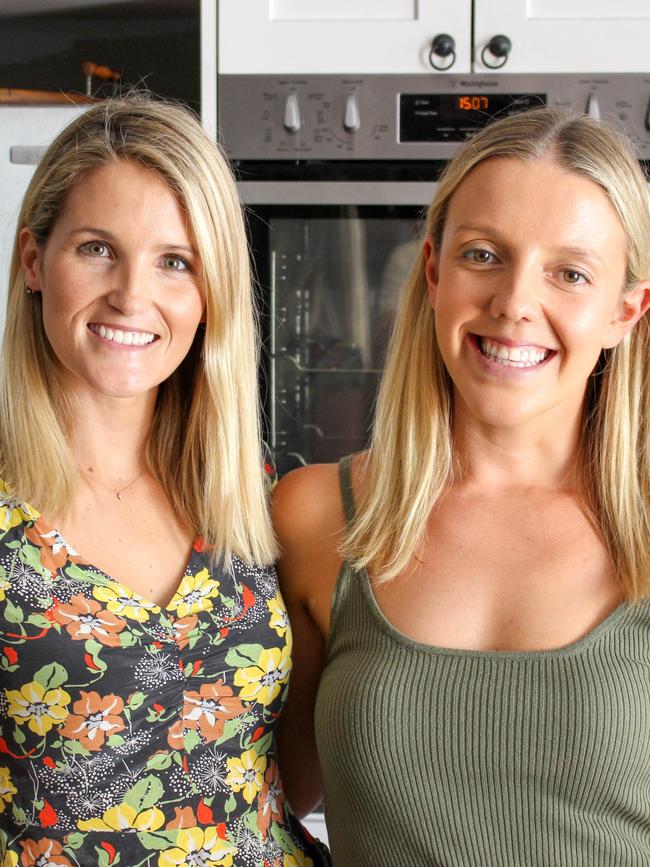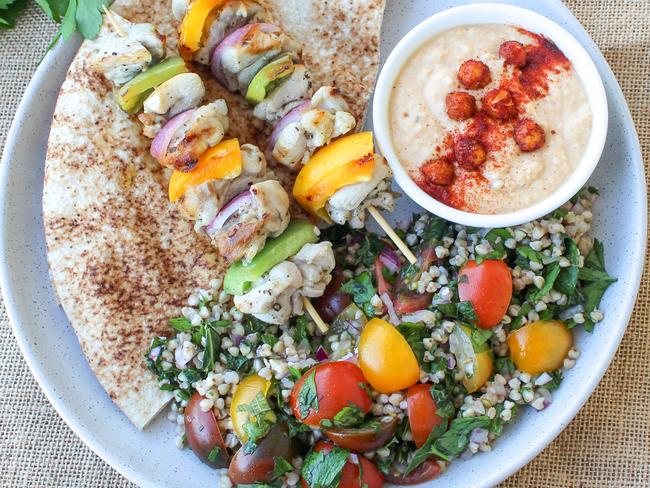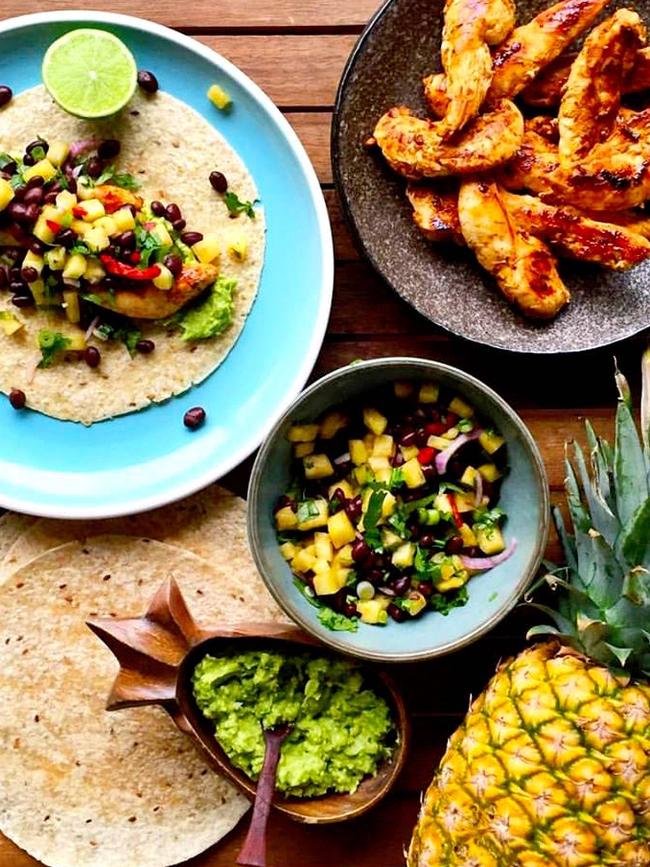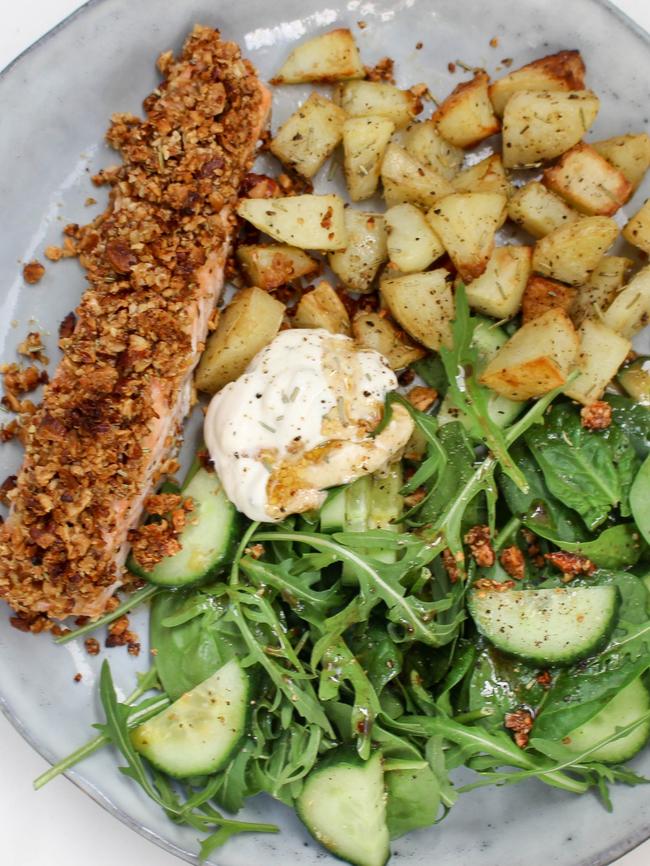Brain food: What Year 12s should be eating for success in final exams
The right food can help students make the most of their prep for final exams — and sugary snacks don’t cut it. Here’s the dietitians’ guide to successful study and what to eat on the day of a test.
Advice
Don't miss out on the headlines from Advice. Followed categories will be added to My News.
The Year 12 study diet of late night sugary snacks, caffeine and energy drinks has got to go, with nutritionists encouraging students to ace their exams with foods that boost energy, increase concentration and stimulate brain power.
That means no more than two coffees a day, protein rich foods and good fats — and if you need a treat, stick to dark chocolate, say Accredited Practising Dietitians Anna Debenham and Alex Parker from The Biting Truth.

“Every meal should have a source of quality protein,” Ms Debenham said.
“Protein-rich foods are filling and provide the body with amino acids, which are the building blocks to produce key chemicals such as neurotransmitters for the brain.
“Neurotransmitters are vital for brain cell-to-cell communication.
“We encourage incorporating both animal proteins like red meat, chicken, fish, eggs, dairy, and plant proteins like chickpeas, lentils, kidney beans, tofu, nuts and seeds.”
The pair works with a large number of high schools across the country implementing school nutrition programs, including one specifically for Year 11 and 12s, about nutrition during their final exams.

“We speak about the importance of diet, exercise, sleep and stress management and provide practical tips when it comes to eating to support academic performance,” Ms Parker said.
“We also run workshops with parents to ensure they are reinforcing the same messages in the home environment.
“While we have noticed a shift and can see that more schools are prioritising health and nutrition education, we still believe schools have a long way to go when it comes to educating students around food choices to support their studies.”
Ms Debenham said there had been a rise in eating disorders and restrictive dieting, which was a major cause of concern.
“We believe more needs to be done from a government level to ensure all schools have access to further nutrition support and resources,” she said.

TOP TIPS FOR EXAM SUCCESS
Good carbs — carbohydrates provide sustained energy for mental alertness and concentration for long periods of study and exams — but students need to be careful which type of carbohydrates they are consuming.
“Try wholegrain carbohydrates such as wholegrain breads and cereals, brown rice, quinoa, wholemeal pasta, wholemeal flour, wholegrain crackers,” Ms Debenham said.
“These are absorbed more slowly in the body, which means energy is slowly released and available for a longer time.
“This means students will be more alert, more able to concentrate and commit information to memory for longer and more effectively.”
Good fats — Fats are essential for optimal brain functioning. Focus on omega-3 rich foods like oily fish like salmon, walnuts and flax seed. The brain uses omega-3s to build brain and nerve cells, and these fats are essential for learning and memory.
Don’t miss breakfast — It’s important to eat a healthy breakfast every morning, as this will help boost energy levels and concentration throughout the day. On exam day, a breakfast packed with protein, wholegrain carbohydrates and some fruit as this will keep students feeling fuller for longer and improve concentration.
“During stressful times like exams, it can be easy to forget to eat something in the morning due to lack of appetite,” Ms Parker said.
“It is important to try and get something in, even a piece of fruit or a glass of milk to avoid a rumbling tummy and low energy levels later on.”
Lunch and Dinners — Focus on fish, beef, lamb, chicken, legumes, tofu and eggs, which are all rich in protein and iron. Iron transports oxygen to the brain which boosts alertness, stamina and energy — skipping meals can contribute to fatigue and loss of concentration and tiredness.
Snacking — Use snacks as an opportunity to get in nutrient rich foods, as healthy snacks can help boost energy and concentration. Usually two to three snacks a day is a good way to boost overall nutritional intake and support brain functioning. It’s a great idea to make sure fruit is easily available at home, and keeping cut-up vegetables in the fridge with a dip is a good way to encourage vegetable consumption. Avoid overly processed, high sugar snacks as these tend to provide a quick surge of energy, followed by a slump.
Caffeine — While a small amount of caffeine can boost alertness, too much can be counter-productive. Ms Debenham said students could get anxious and nervous and it can impact on their concentration, memory and sleeping patterns.
“A maximum of two coffees a day for HSC students and don’t consume coffee after 2pm,” she said.
“Try herbal teas such as peppermint or ginger which are a great alternative without caffeine.”
Water — Staying well hydrated on exam day is essential for optimal brain functioning. Even slight dehydration can impair brain functioning and hence academic performance. Dehydration can impair short-term memory function, so drink water at every meal and snack, and HSC students should be drinking at least eight glasses a day.
Specific foods to boost brainpower — Berries, walnuts, salmon, legumes, leafy green vegetables, eggs, extra virgin olive oil and dark chocolate

THE BITING TRUTH’S EXAM DIET
MONDAY
Breakfast: Wholegrain cereal, milk and a piece of fruit
Morning tea: Piece of fruit with roasted chickpeas
Lunch: Cheese and salad wholegrain wrap
Afternoon tea: Carrot sticks with hummus
Dinner: Homemade burgers (wholegrain bread roll) with salad and oven baked potato chips
Supper: Small tub of yoghurt and 1 homemade bliss ball
TUESDAY
Breakfast: Wholegrain toast with natural peanut butter
Morning tea: Vita weats with cheese
Lunch: Wholegrain sandwich with tuna and salad
Afternoon tea: Smoothie made with fruit, milk and yoghurt
Dinner: Chicken Fajitas (wholegrain wrap) with veggies
Supper: Piece of fruit
WEDNESDAY
Breakfast: Wholegrain toast with boiled eggs and avocado
Morning tea: Small tub yoghurt with piece of fruit
Lunch: Minestrone soup
Afternoon tea: High fibre, low sugar muesli bar and a piece of fruit
Dinner: Spaghetti bolognese (with lots of veggies — carrots, onions, zucchini, capsicum)
Supper: 2 homemade bliss balls
THURSDAY
Breakfast: Oats with Greek yoghurt and a piece of fruit
Morning tea: Carrot sticks with hummus
Lunch: Chicken and salad wholegrain wrap
Afternoon tea: Packet of air-popped popcorn with handful of nuts
Dinner: Grilled salmon with brown rice and salad
Supper: Piece of fruit
FRIDAY
Breakfast: Wholegrain toast with vegemite and a tub of Greek yoghurt
Morning tea: Piece of fruit with roasted chickpeas
Lunch: Tuna pasta salad
Afternoon tea: Small tub yoghurt with piece of fruit
Dinner: Grilled lean steak with green beans, chat potatoes and salad
Supper: Small handful of unsalted nuts
Originally published as Brain food: What Year 12s should be eating for success in final exams


